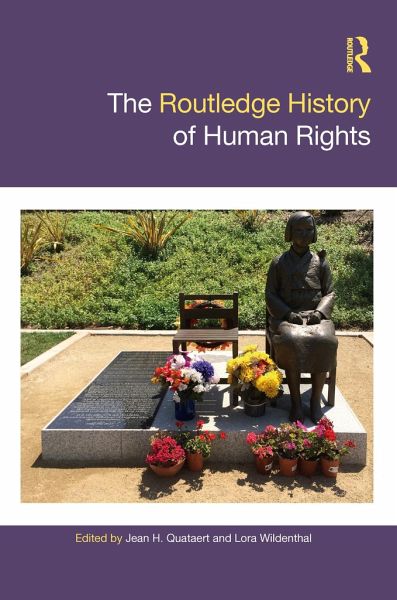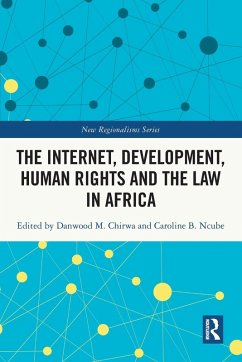
The Routledge History of Human Rights
Versandkostenfrei!
Versandfertig in 6-10 Tagen
53,99 €
inkl. MwSt.
Weitere Ausgaben:

PAYBACK Punkte
27 °P sammeln!
The Routledge History of Human Rights is an interdisciplinary collection that provides historical and global perspectives on a range of human rights themes of the past 150 years.The volume is made up of 34 original contributions. It opens with the emergence of a "new internationalism" in the mid-nineteenth century, examines the interwar, League of Nations, and the United Nations eras of human rights and decolonization, and ends with the serious challenges for rights norms, laws, institutions, and multilateral cooperation in the national security world after 9/11. These essays provide a big pic...
The Routledge History of Human Rights is an interdisciplinary collection that provides historical and global perspectives on a range of human rights themes of the past 150 years.
The volume is made up of 34 original contributions. It opens with the emergence of a "new internationalism" in the mid-nineteenth century, examines the interwar, League of Nations, and the United Nations eras of human rights and decolonization, and ends with the serious challenges for rights norms, laws, institutions, and multilateral cooperation in the national security world after 9/11. These essays provide a big picture of the strategic, political, and changing nature of human rights work in the past and into the present day, and reveal the contingent nature of historical developments. Highlighting local, national, and non-Western voices and struggles, the volume contributes to overcoming Eurocentric biases that burden human rights histories and studies of international law. It analyzes regions and organizations that are often overlooked. The volume thus offers readers a new and broader perspective on the subject.
International in coverage and containing cutting-edge interpretations, the volume provides an overview of major themes and suggestions for future research. This is the perfect book for those interested in social justice, grass roots activism, and international politics and society.
The volume is made up of 34 original contributions. It opens with the emergence of a "new internationalism" in the mid-nineteenth century, examines the interwar, League of Nations, and the United Nations eras of human rights and decolonization, and ends with the serious challenges for rights norms, laws, institutions, and multilateral cooperation in the national security world after 9/11. These essays provide a big picture of the strategic, political, and changing nature of human rights work in the past and into the present day, and reveal the contingent nature of historical developments. Highlighting local, national, and non-Western voices and struggles, the volume contributes to overcoming Eurocentric biases that burden human rights histories and studies of international law. It analyzes regions and organizations that are often overlooked. The volume thus offers readers a new and broader perspective on the subject.
International in coverage and containing cutting-edge interpretations, the volume provides an overview of major themes and suggestions for future research. This is the perfect book for those interested in social justice, grass roots activism, and international politics and society.














